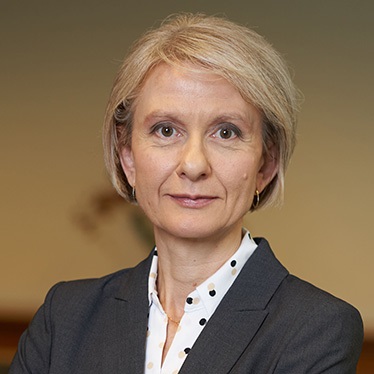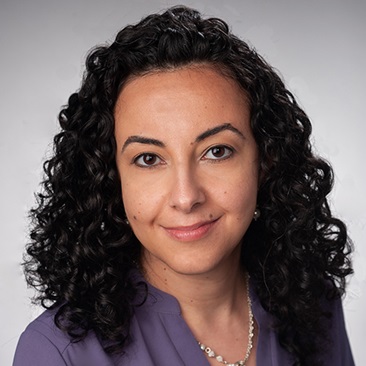Ukraine Crisis Highlights Varied Humanitarian Response
June 15, 2022
SU News
Lamis Abdelaaty’s research explores how discrimination toward vulnerable people fleeing conflict can have a damaging impact.
Russian President Vladimir Putin’s offensive into the sovereign nation of Ukraine generated a widespread humanitarian crisis.
By early April, roughly 4.2 million Ukrainians had fled their homeland. The leaders of neighboring European countries Bulgaria, Poland, Romania, Hungary and Moldova have opened their borders to these refugees seeking safety from the Russian troops.
While these European leaders have demonstrated generosity and kindness in welcoming displaced Ukrainians, the attitude toward them is vastly different than recent instances of migrants and refugees fleeing countries in the Middle East and Africa—and in particular Syrians who fled in 2015, according to Lamis Abdelaaty, associate professor of political science in the Maxwell School.
“Even though the crisis in Ukraine has captured the world’s attention and evoked sympathy, some of the images we’re seeing are almost identical to those coming out of the Syrian crisis,” she says. “The images showing the devastation in the urban areas of Ukraine are the same as those from the aerial bombardment in Syria. Women and children on the run, terrified, carrying what they can and leaving everything else behind and saying goodbye to family members. So why has the Ukraine crisis generated such an outpouring of support while others have not?”
“The images showing the devastation in the urban areas of Ukraine are the same as those from the aerial bombardment in Syria. ...So why has the Ukraine crisis generated such an outpouring of support while others have not?”
Lamis Abdelaaty
Associate Professor of Political Science
This has been the focus of Abdelaaty’s research, shared in her book, Discrimination and Delegation: Explaining State Responses to Refugees (Oxford University Press, 2021). She shows how discrimination toward those fleeing a dangerous conflict can have damaging impacts, from how they view their self-worth to the services they receive and their ability to cope. Labels used to describe them—refu- gees and migrants—impact how countries respond, including the definitions of who is a refugee and who is a migrant, she says.
In the case of Ukraine, Abdelaaty says the correct term to use is migrants, since anyone who is fleeing their home due to indiscriminate violence would not qualify for refugee status under the 1951 Refugee Convention outlined by the United Nations. Under the terms of that treaty, a refugee is a person who is persecuted based on their race or religion.
From the start, Ukrainians were deemed refugees, a stark contrast to 2015, when Abdelaaty says there was much debate over how to refer to those fleeing places such as Syria, Afghanistan and Iraq.
Abdelaaty hopes the way Ukrainians are being helped can set the standard for future crises.
“We need to think carefully about why it is we believe some people are more worthy of support, compassion and assistance than others. We don’t need a United Nations treaty to define the limits of our compassion,” says Abdelaaty.
—By John Boccacino ’20 E.M.P.A.
Published in the Summer 2022 issue of the Maxwell Perspective
Related News
Commentary

May 3, 2024
Commentary

Apr 27, 2024
Commentary

Apr 22, 2024
Research

Apr 18, 2024
